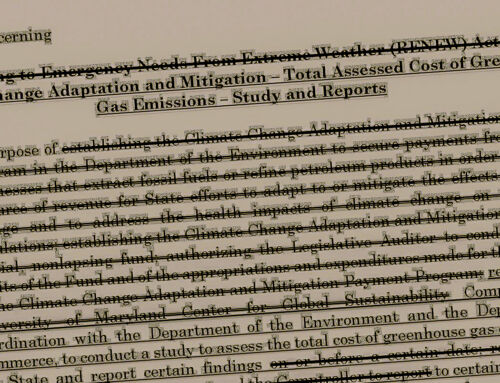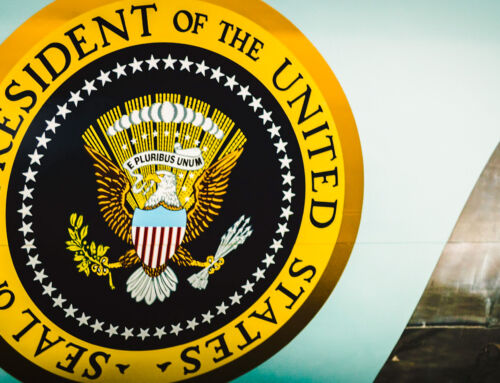View by Topic
Recent Articles
-
Maryland is About to Regulate Mold But is the Cart Before the Horse?Saturday, May 10th, 2025
-
New Environmental Laws from the 2025 Maryland Legislative SessionSaturday, April 26th, 2025
-
Migratory Bird Treaty Act Does Not Prohibit Incidental Take – AgainSaturday, April 19th, 2025
-
President Trump’s Bold Step to Rein in State Overreach in Climate ChangeSaturday, April 12th, 2025
View by Month/Year
“Green Building Law Update” Headlines
Recent Articles & News from
Stuart Kaplow’s blog
at GreenBuildingLawUpdate.com
- Maryland is About to Regulate Mold: But is the Cart Before the Horse? May 11, 2025
- BEPS Redux: The Most Far Reaching Environmental Legislation of the 2025 Maryland General Assembly May 4, 2025
- New Environmental Laws from the 2025 Maryland General Assembly Session April 27, 2025
- Migratory Bird Treaty Act Does Not Prohibit Incidental Take – Again April 20, 2025
Subscribe to the Green Building Law Update!
Stuart Kaplow brings his expertise and extensive experience to the table with his unique digital publication, "Green Building Law Update". Subscribers receive regular updates to keep them informed about important issues surrounding Environmental Law, Green Building & Real Estate Law, as well as the emerging demand for Environmental Social Governance (ESG).
Get fresh content through the lense of Stuart Kaplow's cutting-edge expertise, innovative commentary and insider perspective. Don't miss another issue! Subscribe below.

First State to Authorize Use of the 2021 IgCC
Maryland is on the cusp of being the first state in the country to authorize use of the new 2021 edition of the International Green Construction Code for public and private building.
Many see this cutting edge enactment as crucial to making possible the State’s ESG goal of reducing greenhouse gas emissions in buildings. Maryland Department of Labor staff say the agency is expected to publish the Notice of Proposed Action on January 27, 2023. 46 days after publication allowing for a comment period, the Department will be free to adopt the 2021 IgCC by regulation.
The backstory is important. In 2001, Maryland was one of the first states to incentivize green building, to reduce GHG emissions, with an income tax credit. A decade later, in 2011, Maryland was the first state to authorize the use of the IgCC for private and public construction. Since then, there have been 5 editions of the IgCC, and the last adopted for use in Maryland was the 2012 version.
Last year, Maryland enacted SB 528 the Climate Solutions Now Act of 2022, heralded as the most rigorous state law in the country reducing GHG emissions and otherwise addressing ESG stewardship including climate change. The new law recognizes the role that buildings play (.. the built environment generates more than 40% of annual global GHG emissions) mandating commercial buildings achieve a 20% reduction in “net direct” GHG emissions from 2025 GHG emission levels of similar buildings before January 1, 2030, a 40% GHG reduction before January 1, 2035, and be Net Zero before January 1, 2040.
To provide building owners with the means and methods to accomplish the required decarbonizing of buildings toward Net Zero, Senate Bill 528 also amended the Public Safety Article of the Maryland Annotated Code § 12-503, ..
(d) .. the Department [may] SHALL:
(1) ON OR BEFORE JANUARY 1, 2023, adopt by regulation the 2018 International Green Construction Code; AND
(2) ADOPT EACH SUBSEQUENT VERSION OF THE CODE WITHIN 18 MONTHS AFTER IT IS ISSUED.
Which is legislative speak for the State now “shall” adopt (.. when it had been “may” adopt) the most recent version of the IgCC.
This brief but elegant change helps close the loop where the express “goal of the IgCC is to decrease energy usage and GHGs ..” aligns with the Maryland mandate to disclose and then reduce GHG emissions from buildings.
It is also significant because as businesses look to make ESG disclosures, third party verified information is key to mitigating risks associated with greenwashing claims, and a building complying with the IgCC, either new construction or renovation provides environmental disclosure information third party verified by a local code official! And while the IgCC has been little adopted across the country, that is almost certain to change as jurisdictions look to reduce GHG emissions as the time is now to evolve from doing less harm, bypassing sustainability only, and to net plus and making things better.
There has been criticism that this latest version of the green code is too stringent or unrealistic (.. this brief blog post cannot detail the code), but those naysayers completely miss the mark when the 2021 IgCC both includes a check the box feature for each enactment selecting “jurisdictional options” germane to that locale and maybe more importantly, a modification provision “where there are practical difficulties involved in carrying out the provisions of this code” the authority having jurisdiction over the green code can grant modifications (there is no modification or variance feature in LEED, Green Globes, NGBS or other green building systems).
It is anticipated that in the coming months the Maryland Green Building Council, a State government panel that makes recommendations on the State’s High Performance Building Program, will consider updates to its Program to advantage use of the 2021 IgCC. It is also expected that local governments throughout the State will adopt local amendments to the 2021 IgCC as they adopt it as part of their usual building code cycle of triennial code adoption process.
Lest devotees are concerned, LEED will remain the predominant system for green buildings in Maryland. There will continue to be a welcoming and expanding place in the State for Green Globes, for the NGBS, and other green building rating systems, but the addition of the current version of the IgCC into the marketplace is key to decarbonizing the built environment as it is legislatively mandated in Maryland and to repairing the planet.
Live webinar “Does Your Lease Address New GHG Laws?” 30 talking points in 30 minutes, Tues, Jan. 24 at 9 am EST presented by @StuartKaplow and @HudesNancy on behalf of #ESG Legal Solutions, LLC. Complimentary, but you must register here.









